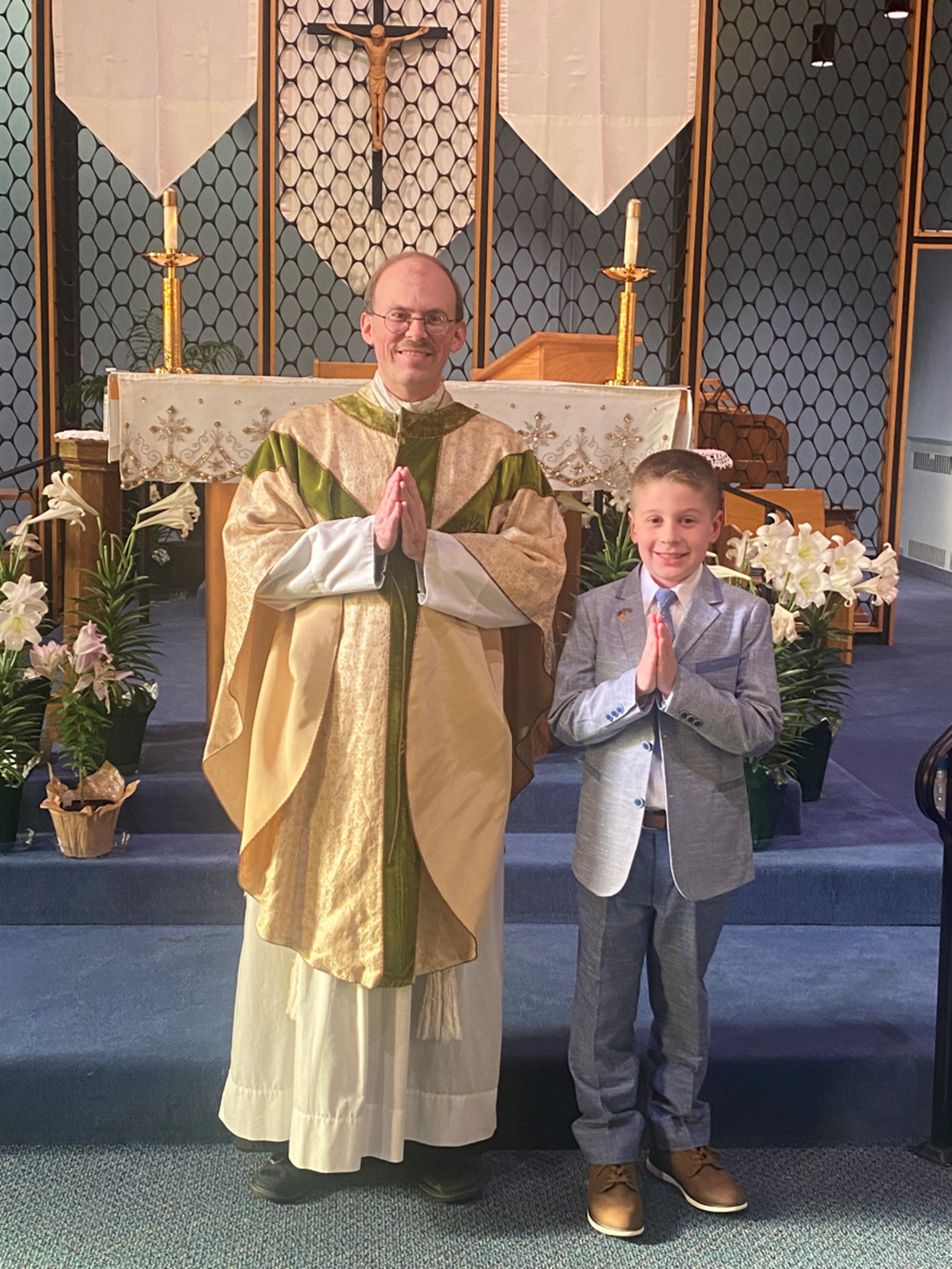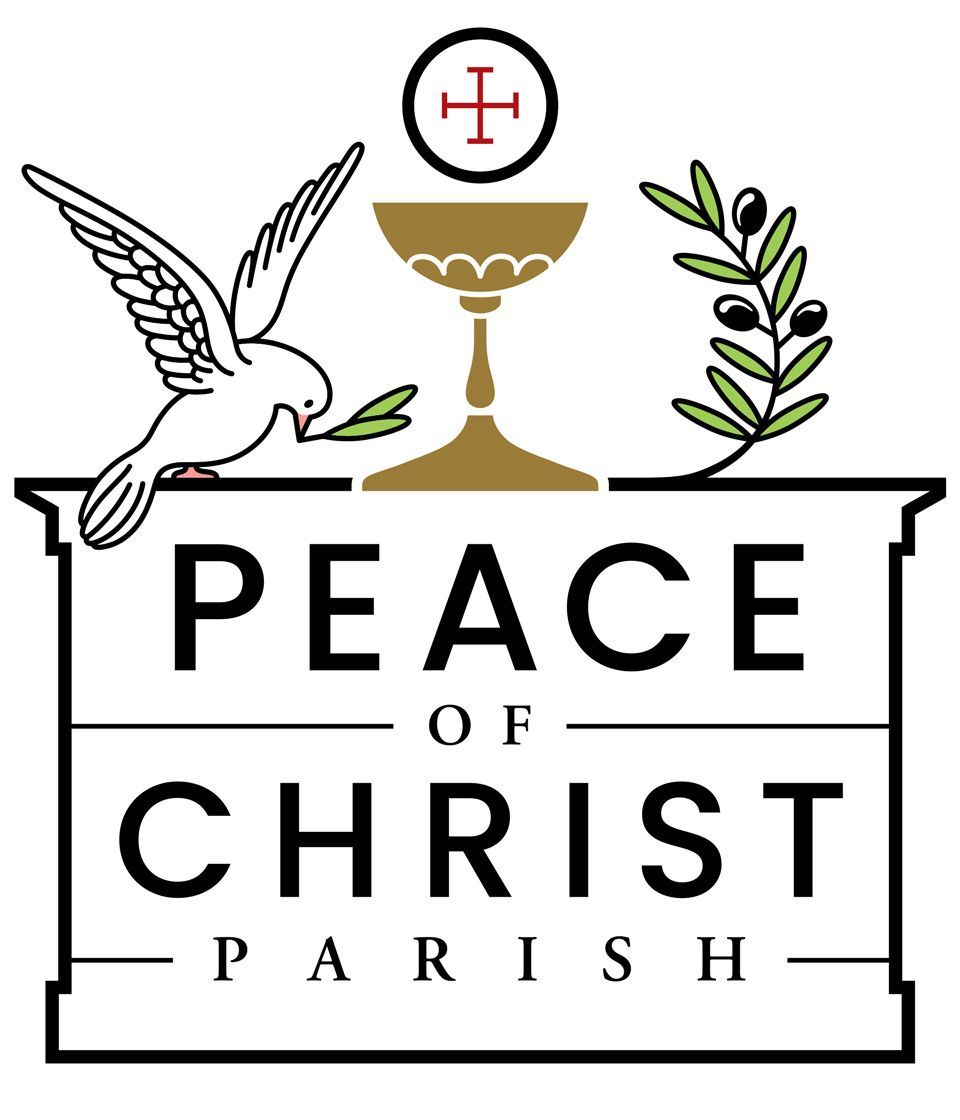Eucharist
The other sacraments, and indeed all ecclesiastical ministries and works of the apostolate, are bound up with the Eucharist and are oriented toward it. (CCC 1324)
The liturgical life of the Church revolves around the sacraments, with the Eucharist at the center (National Directory for Catechesis, #35). At Mass, we are fed by the Word and nourished by the Body and Blood of Christ. We believe that the Risen Jesus is truly and substantially present in the Eucharist. The Eucharist is not a sign or symbol of Jesus; rather we receive Jesus himself in and through the Eucharistic species. The priest, through the power of his ordination and the action of the Holy Spirit, transforms the bread and wine into the Body and Blood of Jesus. This is call transubstantiation.
By the consecration the transubstantiation of the bread and wine into the Body and Blood of Christ is brought about. Under the consecrated species of bread and wine Christ himself, living and glorious, is present in a true, real, and substantial manner: his Body and his Blood, with his soul and his divinity. (CCC 1413)
First Holy Communion
I am the living bread that came down from heaven; whoever eats this bread will live forever;…Whoever eats my flesh and drinks my blood has eternal life and…remains in me and I in him. (John 6:51, 54, 56)
As Catholics, there is no greater privilege than receiving Jesus Christ, body, blood, soul and divinity, in the form of the Eucharist. It is a joy for the entire Church to share the celebration of First Communion with those who have been fully prepared. Preparation for First Holy Communion begins in the parish.
Register for 1st Holy Communion
Before preparing to receive Jesus Christ in the Eucharist, children must first come to know and love Him at an age appropriate level. Therefore, children of parishioners preparing for First Holy Communion are to complete one full year of religious education (at the parish or Catholic School), be actively attending Mass, and be participating in their second consecutive year of religious education (at the parish or Catholic School).
When can my Baptized Catholic child begin preparing for First Holy Communion?
- When they are beginning second grade or older.
- When they have completed one full year of religious education (at the parish or Catholic School), are currently registered and participating in their second consecutive year of religious education (at the parish or Catholic School), and are actively attending Mass.
- When they have completed preparation for the Sacrament of Penance. All the faithful are obliged to approach the Holy Eucharist only if they are reconciled with God and Church. Therefore, Children/Youth must be prepared for the Sacrament of Penance before being prepared for the Sacrament of Holy Communion.
- The family must be registered at Peace of Christ Parish.
Questions? Contact Katie Amann, Pastoral Associate for Faith Formation, at [email protected].

Understanding the Mass
The central act of worship in the Catholic Church is the Mass. It is in the liturgy that the saving death and resurrection of Jesus once for all is made present again in all its fullness and promise – and we are privileged to share in His Body and Blood, fulfilling his command as we proclaim his death and resurrection until He comes again. It is in the liturgy that our communal prayers unite us into the Body of Christ. It is in the liturgy that we most fully live out our Christian faith.
The liturgical celebration is divided into two parts: the Liturgy of the Word and the Liturgy of the Eucharist. First we hear the Word of God proclaimed in the scriptures and respond by singing God’s own Word in the Psalm. Next that Word is broken open in the homily. We respond by professing our faith publicly. Our communal prayers are offered for all the living and the dead in the Creed. Along with the Presider, we offer in our own way, the gifts of bread and wine and are given a share in the Body and Blood of the Lord, broken and poured out for us. We receive the Eucharist, Christ’s real and true presence, and we renew our commitment to Jesus. Finally, we are sent forth to proclaim the Good News!
